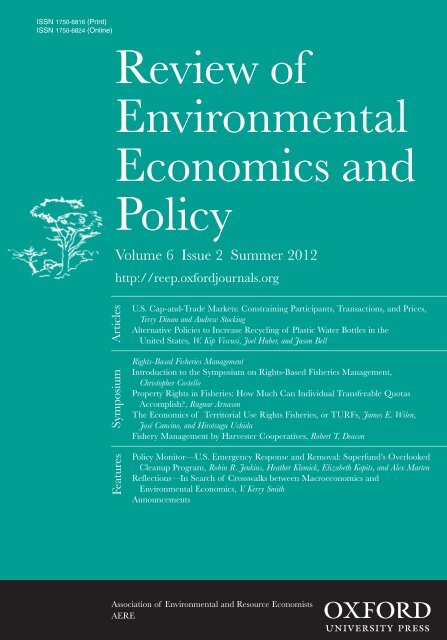Integrating Natural Capital into National Accounts: Three Decades of Promise and Challenge
IF 6.6
3区 经济学
Q1 ECONOMICS
引用次数: 17
Abstract
Economists and ecologists have worked for decades on measuring sustainability by supplementing or adjusting traditional economic indicators such as GDP. Given the threats to humanity from climate change, environmental degradation, and biodiversity loss, it is vital to incorporate values of natural capital into national economic decision-making. This review focuses on how natural capital applications, historically applied from local to global scales, address national-scale concerns. However, natural capital data and accounts have been only partially developed in most countries, given a lack of common metrics and monetary values. Existing accounts are often incomplete in both the types of natural capital and ecosystems they include (e.g., water, land, different ecosystem types) and the values they measure (e.g., market vs. nonmarket values). While it is important to continue work to embed natural capital into national economic accounts, the need for practical tools to analyze environmental problems is more urgent. We review alternative options for incorporating natural capital into national-scale decision-making and make recommendations for countries where the data, capacity, and political will to conduct formal natural capital accounting are lacking.将自然资本纳入国民账户:三十年的前景与挑战
几十年来,经济学家和生态学家一直致力于通过补充或调整GDP等传统经济指标来衡量可持续性。鉴于气候变化、环境退化和生物多样性丧失对人类的威胁,将自然资本的价值纳入国家经济决策至关重要。这篇综述的重点是历史上从地方到全球范围内应用的自然资本应用如何解决国家范围内的问题。然而,由于缺乏共同的衡量标准和货币价值,大多数国家的自然资本数据和账户只得到了部分开发。现有账户在自然资本和生态系统的类型(如水、土地、不同的生态系统类型)及其衡量的价值(如市场价值与非市场价值)方面往往不完整。尽管继续努力将自然资本纳入国民经济账户很重要,但更迫切需要分析环境问题的实用工具。我们审查了将自然资本纳入国家层面决策的替代方案,并为缺乏进行正式自然资本核算的数据、能力和政治意愿的国家提出了建议。
本文章由计算机程序翻译,如有差异,请以英文原文为准。
求助全文
约1分钟内获得全文
求助全文
来源期刊
CiteScore
10.80
自引率
0.00%
发文量
25
期刊介绍:
The Review of Environmental Economics and Policy fills the gap between traditional academic journals and the general interest press by providing a widely accessible yet scholarly source for the latest thinking on environmental economics and related policy. The Review publishes symposia, articles, and regular features that contribute to one or more of the following goals: •to identify and synthesize lessons learned from recent and ongoing environmental economics research; •to provide economic analysis of environmental policy issues; •to promote the sharing of ideas and perspectives among the various sub-fields of environmental economics;

 求助内容:
求助内容: 应助结果提醒方式:
应助结果提醒方式:


